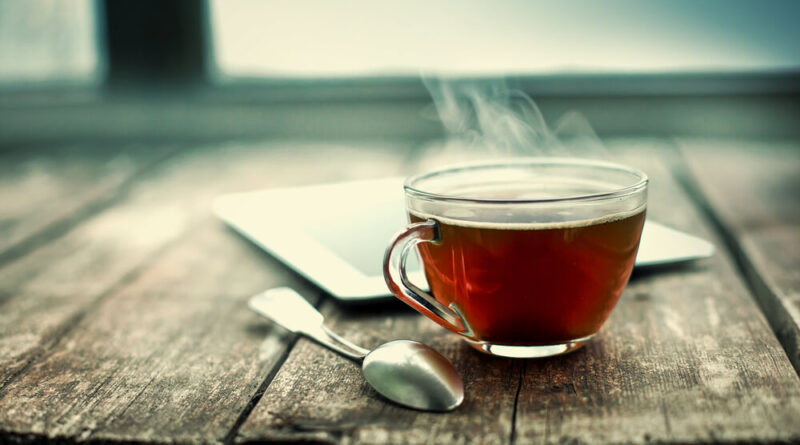Tea for Allergies: Everything You Need To Know
Suffering from runny eyes, sniffs, and sneezes during this time of the year? Well, you are not alone. Allergies occur due to the reaction of the immune system(1) in the presence of some foreign substance, which is most likely, harmless to any other people but you.
Although most of the allergies cannot be cured fully, there are certain medications to treat them in order to prevent the allergies from making your life miserable. Do not wait for the allergic symptoms to arrive. Take timely measures to prevent the onset of the allergies.
There are also natural solutions such as tea that helps with allergies. There are many teas for allergies.
Here are some recommendations for the best teas for allergies that would provide you with allergy relief.
Table of Contents
Did You Know!
|
Tea for Allergies
1. Nettle
Nettle is regarded as a very prickly plant. It acts as an irritant. However, the leaves of a nettle plant serve quite a beneficial purpose. Its medicinal properties can be considered as a remedy for natural remedy as allergy relief.
The nettle leaves, in general, have a grassy, unpleasant taste. However, when it is blended with other herbs, it becomes quite an enjoyable daily drink. Nettle has anti-inflammatory qualities(2), which helps in the prevention of hay fever symptoms. The inflammatory powerhouse attacks the allergies at the roots of inflammation and helps in letting you move on with your life.
2. Green Tea

Green tea for allergy relief is highly preferable. Research shows that green tea is anti-allergenic. Green tea helps in blocking an important cell receptor that is involved in the result of an allergic response. Green tea contains the compound methylated epigallocatechin galate (EGCG)(3), which employs the same effect as that particular key cell receptor.
Due to the presence of this anti-allergenic substance, green tea acts as an important and significant substance for the prevention of the allergies. Methylated epigallocatechin gallate (EGCG) is considered to be one of the most active with abundant antioxidants present in any tea. It is beneficial not only for allergies but also helpful for other health benefits. The compound is found to be present in high concentrations in green tea than black and/or oolong.
3. Bee Pollen Tea
Bee pollen is actually a food. Due to its ingredients and properties, it can also be considered as nature’s superfoods. The United States Department of Agriculture states that bee pollen is one of the most nutritious foods available to us.
Bee pollen contains antioxidants, vitamins, lipids, protein, and minerals. Bee pollen is said to boost energy, ward off allergies and help in relieving digestive disorders. When an allergic reaction takes place, the body’s immune system creates antibodies.
The antibodies activate certain cell receptors, releasing histamine. This release of histamine is responsible for the cause of an allergic reaction. Bee pollen plays a significant part in the reduction of histamine, thus reducing the allergic reaction.
In case of allergies, bee pollen is mixed in the tea with some honey. You can also use caramel. This will help in providing a sweet taste, along with good health benefits.
4. Licorice Root Tea
Licorice root tea for allergy relief is considered to-be an age-old method(4). It is said to possess anti-inflammatory properties that help in the provision of anti-allergic effects and it provides relief from discomfort and irritation in respiratory passages.
Using licorice root for the treatment of allergies is pretty much an old school remedy. Licorice root is known for its natural cough suppressant and expectorant purposes.
Its anti-inflammatory properties help in the assistance in healing respiratory problems(5). The health benefits of licorice root tea are due to the presence of organic compounds, such as sterols, anethole, glycosides, flavonoids, coumarins and a number of various antioxidants, vitamins, and minerals.
The root is said to be very powerful and potent in nature, thus, reducing the toxicity of the substance.
However, due to its intense nature, it is advised to consume no more than 3 cups a day. It should be quite significant in helping your health and its benefits.
Licorice root tea is not only the best tea for skin and allergies, but also, low blood pressure, gout, colds, indigestion, respiratory infections, arthritis, coughs, dry skin, painful menstruation, high toxicity levels, seizures, dandruff, hair loss and premature aging amongst various other conditions.
5. Peppermint Tea

One of the most effective and beneficial herbs, peppermint is mainly used to treat asthma and dust allergies. It is an aromatic herb in the mint family. It is a hybrid of watermint and spearmint.
Peppermint is helpful due to its anti-inflammatory, anti-bacterial, antiviral and decongestant properties.
The decongestant property comes from a very volatile oil in peppermint known as menthol. Menthol helps as a natural decongestant.
Thus, it helps in providing immediate relief from sneezing, wheezing, stuffy nose, and even the common cold. Peppermint tea helps in fighting the clogged sinuses caused due to infections.
The menthol contained in peppermint improves the airway, thus promoting airflow in the nasal cavity. Thus, the steam from peppermint tea helps in the provision of easier breathing and nasal airflow.
Also Read: Health Benefits of Matcha Tea
Other Types of Tea for Fighting Allergies:
- Rooibos (Red Bush Tea): The 2 bioflavonoid, rutin, and quercetin help in the blockage of histamine, thus, preventing allergic reactions.
- Dried Ginger: It works as an anti-inflammatory and natural histamine.
- Yerba Mate: It produces corticosteroids that act anti-inflammatory to the allergens.
- Lemon Balm
- Antihistamine Tea: A mixture of nettle, ground ginger, and peppermint.
- Honey and Lemon Tea
- A blend of Rooibos, peppermint, nettle, lemon balm, and yerba mate.
Therefore, if you are suffering from allergies you can have tea, however, normal milk and black tea won’t be of much use. If you really want to treat this problem, make drinking herbal teas for allergies a habit which will surely cure you of the problem and help you to live a life without allergies. However, it is always advisable to have an expert opinion before you start drinking any one of the above mentioned teas.




